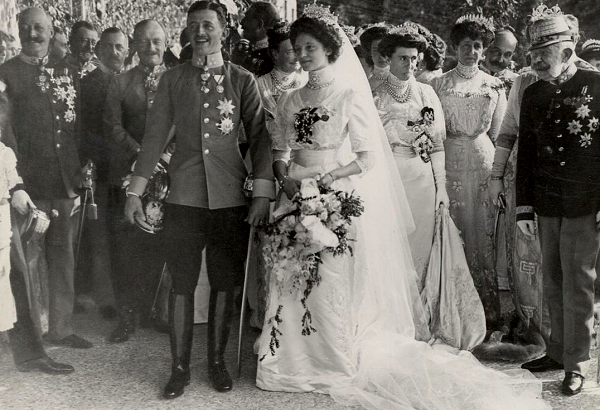Fr Conor McDonough
“Where are all the married saints?” It’s a question we might find ourselves asking as we prepare for the upcoming World Meeting of Families.
Of course, countless unknown saints have been raised up by God in the heart of family life, but very few of them are officially canonised or beatified. Pope St John Paul II was keen to correct this deficit and beatified and canonised many married men and women, including Blessed Karl of Austria, whose relics will be venerated in Galway cathedral at the start of the WMoF.
Karl was hardly an ‘ordinary’ husband and father. He was born into the Habsburg family, the rulers of the Austro-Hungarian emperor. His wife, Zita, was a princess in her own right. Karl found himself in power unexpectedly early when the first in line, Franz Ferdinand, was assassinated in 1914, an event that led to the outbreak of war.
When the ruling emperor died in 1916, Karl ascended to the throne, not yet 30, and short of political experience.
Karl ruled for two years only, at a time when his empire and Europe at large were being torn apart by various forms of nationalism. He worked tirelessly for an end to these conflicts, offering to decentralise the empire and to give up large territories for the sake of peace. In all of this, his wife was at his side, using her contacts to engage in secret negotiations.
Ridicule
When he was beatified in 2004, some cynics in Austria suggested Blessed Karl be made the ‘patron saint of losers’, and it’s true that his political efforts ultimately came to nothing. He was deposed in 1918, and his peace efforts were ridiculed and vilified. With his wife and children he led a fugitive existence for some years, before dying in exile on the island of Madeira in 1922.
Every political career ends in failure, but what’s extraordinary, and extraordinarily holy, about Blessed Karl is how he dealt with failure. He lost everything, including the crowns his ancestors had worn for centuries, but he didn’t retreat into bitterness. In his years in exile the discrowned emperor continued to devote himself cheerfully to honouring the only King whose kingdom endures.
He did this by attending daily Mass, often serving at the altar, and by praying daily with his family. He did it too by honouring his beloved wife Zita, whom he treated with unfailing affection. And he did it by lavishing attention on his eight children, reading to them, playing with them, and bringing them fishing and hiking.
The pneumonia that eventually killed Karl began with a cold he caught when he was out buying toys for his son, Karl Ludwig. And this tender love of a holy father endured to the end: as he lay dying, he prayed by name for each of his little children.
Tendency
We talk a lot today about ‘toxic masculinity’, the dangerous tendency of men to dishonour women and to use their power to take from them what they want. The best antidote to this poison, prescribed long ago, was well known to Blessed Karl and is still valid today: faith in Christ and imitation of his self-giving love. “Husbands, love your wives, just as Christ loved the church and gave himself up for her” (Ephesians 5:25).
The relics of Blessed Karl of Austria will be venerated in Galway Cathedral at the diocesan launch of the World Meeting of Families on Tuesday, August 21 at 7pm. The assembly will be addressed by Imre de Habsbourg-Lorraine, Blessed Karl’s great-grandson.


 Blessed Karl of Austria with his wife Zita
Blessed Karl of Austria with his wife Zita 